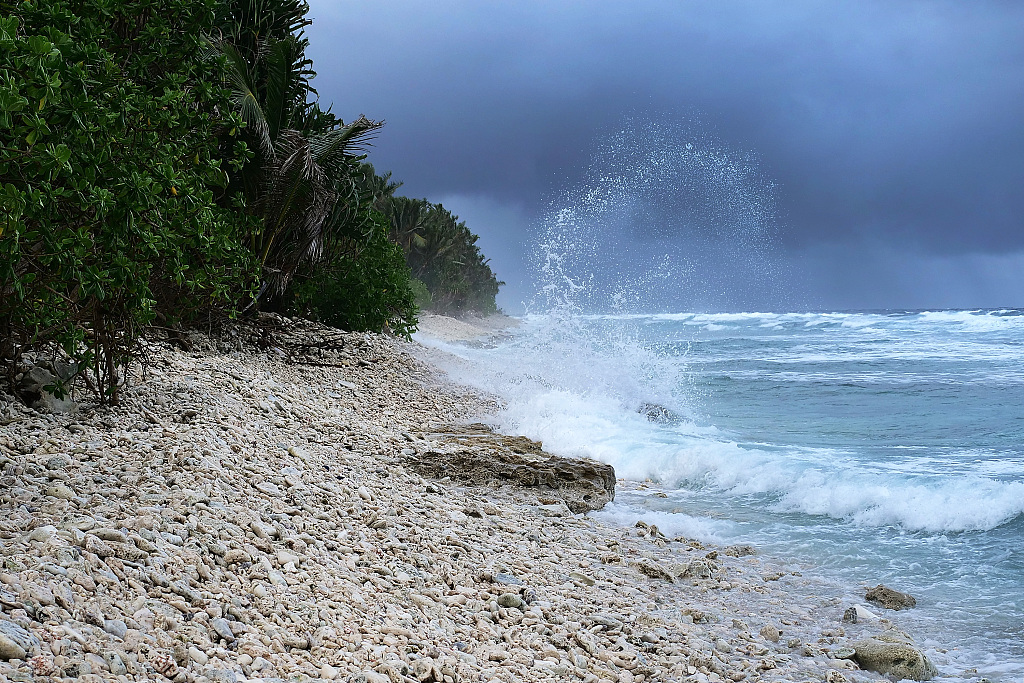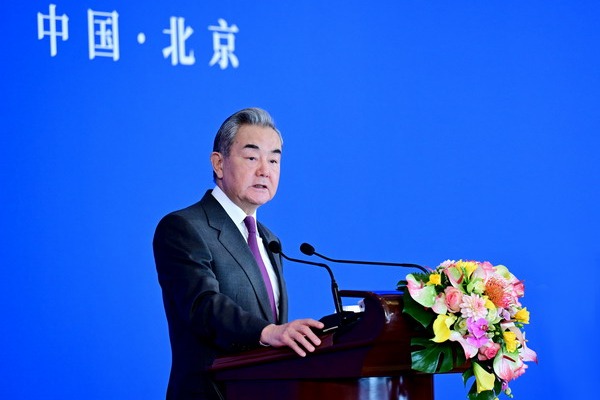Tuvaluans find tough shelter from rising seas


Small, low-lying island nations are increasingly facing a bleak future as sea levels rise due to climate change and in the Pacific some of these countries, which sit a few meters above sea level, could be underwater by the end of the century, experts said.
Amid the environmental threat, Australian Prime Minister Anthony Albanese stunned participants of the recent Pacific Islands Forum in the Cook Islands when he announced that Australia will grant Tuvalu's 11,000 inhabitants full residency rights to settle in Australia.
Formerly known as the Ellice Islands, Tuvalu is part of the Polynesian subregion of Oceania in the Pacific Ocean and is being slowly reclaimed by the sea.
Climate Council senior researcher Wesley Morgan said: "This is the first agreement of its kind in the world — an international treaty that enables the relocation of a national population threatened by climate change and sea-level rise, in return for close alignment on security matters.
"Relocation is one thing, but we need to address climate change at its root cause first and foremost," he said.
"Australia is a major emitter, and it is a wealthy nation. So, we can and should do all we can to rapidly cut emissions and phase out coal, oil and gas as fast as possible, so that people are not forced from their homes.
"Other nations will be looking closely at this deal, but it is unlikely to be replicated. The circumstances for the Australia-Tuvalu deal are quite unique."
Known as the Australia-Tuvalu Falepili Union, the treaty will allow people from Tuvalu "a special human mobility pathway" to settle in Australia. The treaty limits the number going to Australia to 280 a year.
Tuvalu's Prime Minister Kausea Natano told Radio New Zealand Pacific that he was "very happy" with the treaty and hoped it would be the model for similar arrangements with countries such as New Zealand and Fiji.
Climate challenge
The director of the Macmillan Brown Centre for Pacific Studies at the University of Canterbury in New Zealand, Professor Steven Ratuva, said the treaty was "significant in the context of addressing the long-term issue of climate change and climate mobility in the Pacific".
But the treaty appears to have been done in "bad faith", he said.
"In return for residency, Tuvalu had to cede part of its sovereignty to Australia. And as part of the deal, Australia will be responsible for Tuvalu's security and will determine which external power Tuvalu deals with in this context."
Donald Rothwell, professor of International Law at the Australian National University College of Law in Canberra, described the treaty as "the most significant development for Australia and a Pacific Island nation for decades".
The Climate Council's Morgan said Pacific island economies already face significant challenges.
"Being remote from centers of international commerce and uniquely exposed to disasters, climate change makes economic development much harder," he said.
"To take just one example: as the Pacific Ocean becomes hotter, it 'supercharges' tropical cyclones. In the past decade, Pacific nations have been struck by a string of severe Category 5 cyclones that have killed dozens, left tens of thousands of people in emergency shelters, decimated food crops, and crippled sorely needed infrastructure."

































